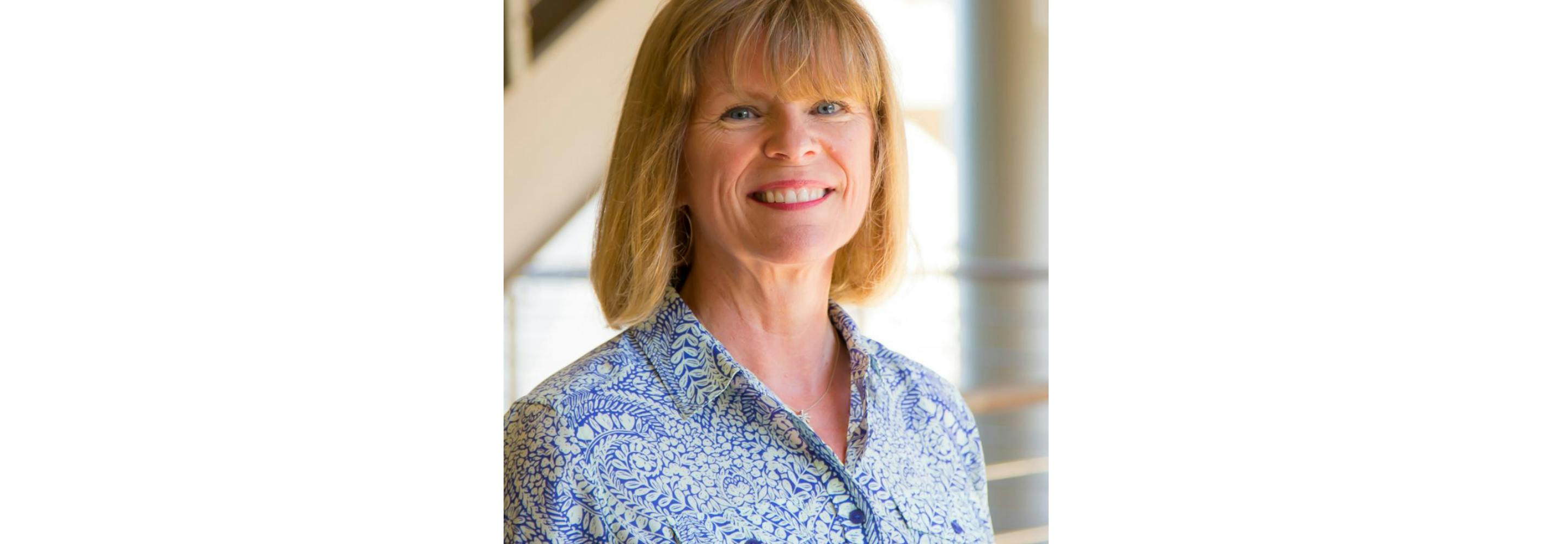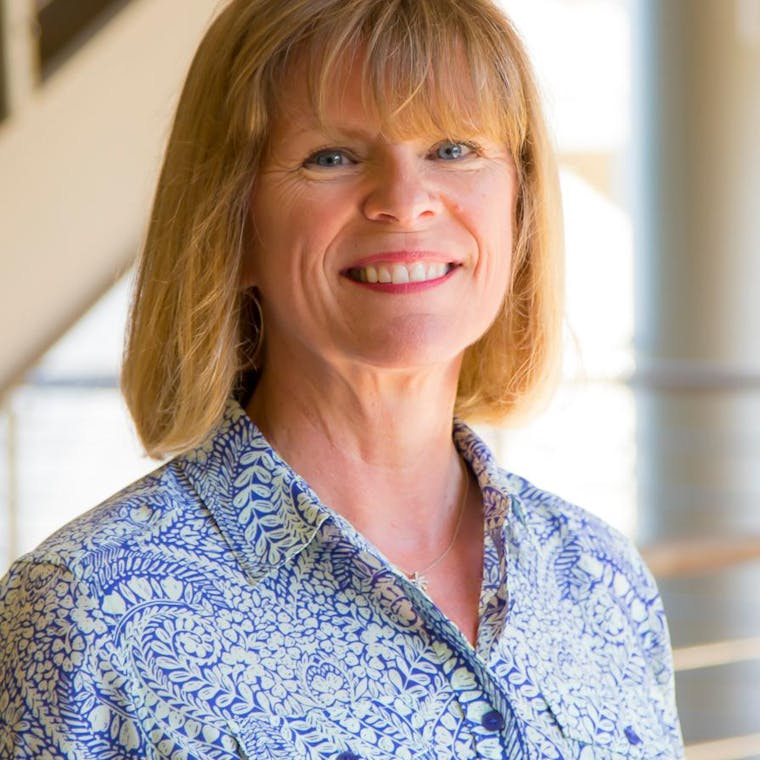Meet the Kaplan Experts: Maria Lofftus, J.D., Medical School Admissions Consultant
by Maria Lofftus, J.D., Medical School Admissions Consultant | May 20, 2021

The Kaplan Team is often cited as why schools stay with Kaplan, year after year. At Kaplan, there’s an expert at the heart of everything we do, whether it’s leading a class or developing innovative tools to help your students achieve their career goals. With our “Meet the Kaplan Experts” blog series, we introduce you to Kaplan’s extensive network of faculty, medical, and educational experts and delve into their diverse areas of expertise so that you can learn even more about your Kaplan team. This week, we're pleased to introduce you to Maria Lofftus, J.D., Medical School Admissions Consultant.

Tell Us About Yourself
I grew up in Del Mar, California, a small beach community north of San Diego. After graduating from U.C. San Diego, I joined the School of Medicine admissions office, ultimately becoming the Assistant Dean for Recruitment, Admissions, and Financial Aid. In addition to training my own admissions committee members, as a consultant with the Association of American Medical Colleges (AAMC) I trained committee members at other U.S. medical schools. For nearly a decade, I served on the AAMC’s National Committee on Admissions, where I represented the concerns and interests of medical schools in the western United States. I also served on the AAMC’s National Committee on Diversity and was the Chair of the National Committee on Admissions.
I joined Kaplan as a consultant for their pre-medical advising practice in 1995. I was responsible for creating “The Inside Scoop on Medical School Admissions” seminar series and was the lead author on Kaplan's Medical School Admissions Advisor handbook.
In 2001 I was recruited back to U.C. San Diego as a start-up team member for the Rady School of Management. As the Assistant Dean for Academic Affairs and Special Initiatives, I was responsible for writing and shepherding the school, various academic degrees, and accreditation proposals to successful completion.
What are your particular areas of expertise?
I am an expert in the medical school admissions process, medical school interview preparation, and negotiating higher-ed bureaucracy. On a much more fun and tastier note, I know my way around many of the wine-growing regions of California.
What is your most unique experience, hobby, or personal quality?
While certainly not unique, I do get a few raised eyebrows when I tell people that I raise native bees. “Don’t you get stung?” is probably the most common question I get, and the answer is not at all; native bees are gentle and easy to get along with. North America is home to about 4,000 native bee species, the vast majority of which are solitary in nature. In contrast, European honeybees, the bees most people think of when they think of bees, are social. Social bees live in a colony, build hives, make honey, and swarm. Solitary bees are gentle because they don’t have a hive or stores of honey to defend. And while I’ve never been stung, if it were to happen, it would hurt less because they lack the honeybee’s venom.
Tell Us About Your Experience in Medical Education
How long have you worked for Kaplan and what drew you to your current role?
As Assistant Dean for U.C. San Diego School of Medicine, it was important to me to demystify the admissions process. I always felt that if we believed in our evaluation process, we should be transparent about how it worked, what we were looking for, and how much relative weight we gave each factor. To that end, I met with any pre-applicant, applicant, or rejected applicant who wanted to meet with me. Serving on the AAMC’s Committee on Admissions and learning of the various approaches schools took when selecting their class reinforced my belief in the need for transparency in the process.
Upon retiring from U.C. San Diego and having spent the past number of years pushing papers through the higher education review and approval process, I was excited to rejoin Kaplan’s Medical School Admissions Consulting group and help students achieve their personal and professional goal of becoming a physician.
Throughout my 25+ year history with Kaplan, the thing that has always stood out for me is the integrity embedded in their corporate culture. As an admissions consultant, my job is to give my professional best to students coming to me for guidance in preparing for medical school, and sometimes what I have to say is not what they want to hear. When I don’t see a path forward for them, I recommend that they receive a refund. For me, this is the most critical aspect of the partnership we have with the pre-med students we serve: we put them and their best interests first.
Do you have a particularly notable student success story to share?
Most of my students have either been out of school for many years, are an international student, or a reapplicant. Applying to medical school is physically and emotionally exhausting, not to mention expensive. The last thing anyone wants to do is to have to reapply a second, third, or even fourth time – but many successful applicants have done just that. I thoroughly enjoy working with all of my students. Still, the reapplicant holds a special place in my heart because I can not only explain what happened but, more importantly, give them a path forward to achieving their dream of becoming a physician.
I also love helping students prepare for the multiple-mini-interview or MMI. While the topics asked are virtually endless, almost all questions fall within specific categories: ethics, public policy, difficult conversation, personal qualities, medical ethics, and group activity scenarios. Once a student learns to identify the category a question falls within, I teach them how to apply an applicable framework for that kind of question, making answering it reasonably straightforward. As one of my now accepted students said, “I was able to approach each question almost exactly as we rehearsed, which made me feel so much more confident and relaxed!”
Share your insights into the Medical Education Industry
What is the most important issue that professionals in your industry should be talking about today?
Oh, so many things, but here are the three that I’m thinking about:
Representation remains at the top of my list. We must do better at ensuring that our physician workforce reflects our population. As a share of the United States’ Gross Domestic Product, health spending accounts for nearly twenty percent. We spend nearly twice as much per person on health care as other wealthy countries, but on average, we die five years younger. We have higher rates of suicide, drug overdoses, and people living with chronic illnesses. As COVID 19 has demonstrated, healthcare in America is rife with inequities. To move the needle, we must dismantle systemic racism in health care policy and practice and counter inequities in treatment, patient experience, and outcomes. While many changes are needed, an essential element is to ensure that we educate physicians who represent the interests of all our communities, but especially people of color, indigenous people, people from rural and lower socioeconomic communities as well as lesbian, gay, bisexual, transgender, and queer people, and people with disabilities.
The lack of primary care physicians hurts all of us. Access to a primary care physician is key to a healthy population because those are the physicians who coordinate and maintain the health of everyday Americans. When patients don’t have access to a primary care physician, they seek help in more expensive care settings, such as urgent care and emergency rooms, often for problems that have become more serious. We need to address the cost of high medical school tuition and its impact, both financially and medically, on us all.
Lastly, as mentors, we need to do a better job of exposing our students to osteopathic medicine. In my experience, when most people dream of the kind of doctor they want to become, they see themselves as someone who prevents illness and suffering, who knows their patients by name, and who contributes to the wellbeing of their community―in other words, a primary care physician. And while absolutely M.D.s can and do become primary care physicians, the percent of M.D.’s going into primary care has been declining since 2011 while the percentage of osteopathic physicians has been increasing. For many of our students, osteopathic medicine is a good fit; they just need to be encouraged to learn more about it.
Advice
If you could offer one piece of advice for educators preparing for their students for their MCAT test or medical school admissions, it would be:
Don’t go it alone; get guidance from people who understand the medical school admissions process, what schools are looking for, and how you can present yourself in the best light.
And finally, is there anything else that you would like to share with our readers?
It’s true what they say, when you love what you do, you’ll never work another day in your life; I really do love assisting our students to achieve their medical education dreams.

I grew up in Del Mar, California, a small beach community north of San Diego. After graduating from U.C. San Diego, I joined the School of Medicine admissions office, ultimately becoming the Assistant Dean for Recruitment, Admissions, and Financial Aid. In addition to training my own admissions committee members, as a consultant with the Association of American Medical Colleges (AAMC) I trained committee members at other U.S. medical schools. For nearly a decade, I served on the AAMC’s National Committee on Admissions, where I represented the concerns and interests of medical schools in the western United States. I also served on the AAMC’s National Committee on Diversity and was the Chair of the National Committee on Admissions. I joined Kaplan as a consultant for their pre-medical advising practice in 1995. I was responsible for creating “The Inside Scoop on Medical School Admissions” seminar series and was the lead author on Kaplan's Medical School Admissions Advisor handbook. In 2001 I was recruited back to U.C. San Diego as a start-up team member for the Rady School of Management. As the Assistant Dean for Academic Affairs and Special Initiatives, I was responsible for writing and shepherding the school, various academic degrees, and accreditation proposals to successful completion. Upon retiring from U.C. San Diego and having spent the past number of years pushing papers through the higher education review and approval process, I was excited to rejoin Kaplan’s Medical School Admissions Consulting group and help students achieve their personal and professional goal of becoming a physician. Throughout my 25+ year history with Kaplan, the thing that has always stood out for me is the integrity embedded in their corporate culture.
See more posts by Maria Lofftus, J.D., Medical School Admissions Consultant
